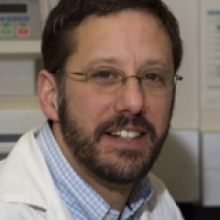Arnold Scott Kristof
Assistant Professor

Research Interests
1. The role of nutrition in organ injury and repair.
2. Metabolism and the Tumour Microenvironment.
Research Orientations
1. Regulation of Nuclear Transport, Gene Expression, and Cell Survival by Mammalian Target of Rapamycin (mTOR):
We recently discovered that a protein kinase, mammalian target of rapamycin (mTOR), forms a macromolecular complex that and regulates the nuclear import of transcriptional regulators in response to nutrient restriction.
I am currently using in vitro and murine models to study the components and molecular determinants of this mTOR nuclear import complex, and how it mediates responses to nutrient availability during pulmonary innate immune responses and lung injury.
2. Amino Acid Nutrition in Critical Illness:
The availability of essential amino acids controls cell metabolism, growth, and survival. We are currently investigating the effects of dietary amino acid restriction and supplementation on myeloid and lymphoid function in vitro, in mouse models of bacterial infection, and in critically ill human subjects.
3. Control of cell survival and metastasis in lymphangioleiomyomatosis (LAM):
Loss of the TSC2 gene and increased mTOR activity plays an important role in LAM. I study mechanisms by which the abnormal tumour-forming cells (LAM cells) grow and metastasize to the lung.
We are currently working with engineered stem cell models to better understand the ‘cell of origin’ in LAM, how it adopts cancer-like properties, and its interactions with the tumour microenvironment. The intent is to devise ways to cure LAM or prevent its clinical progression.